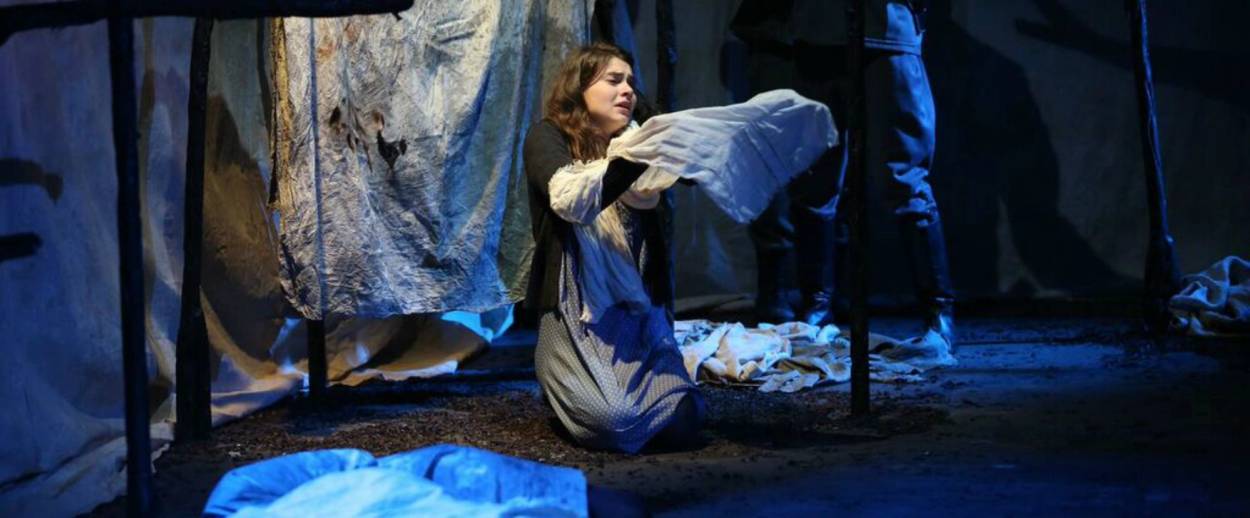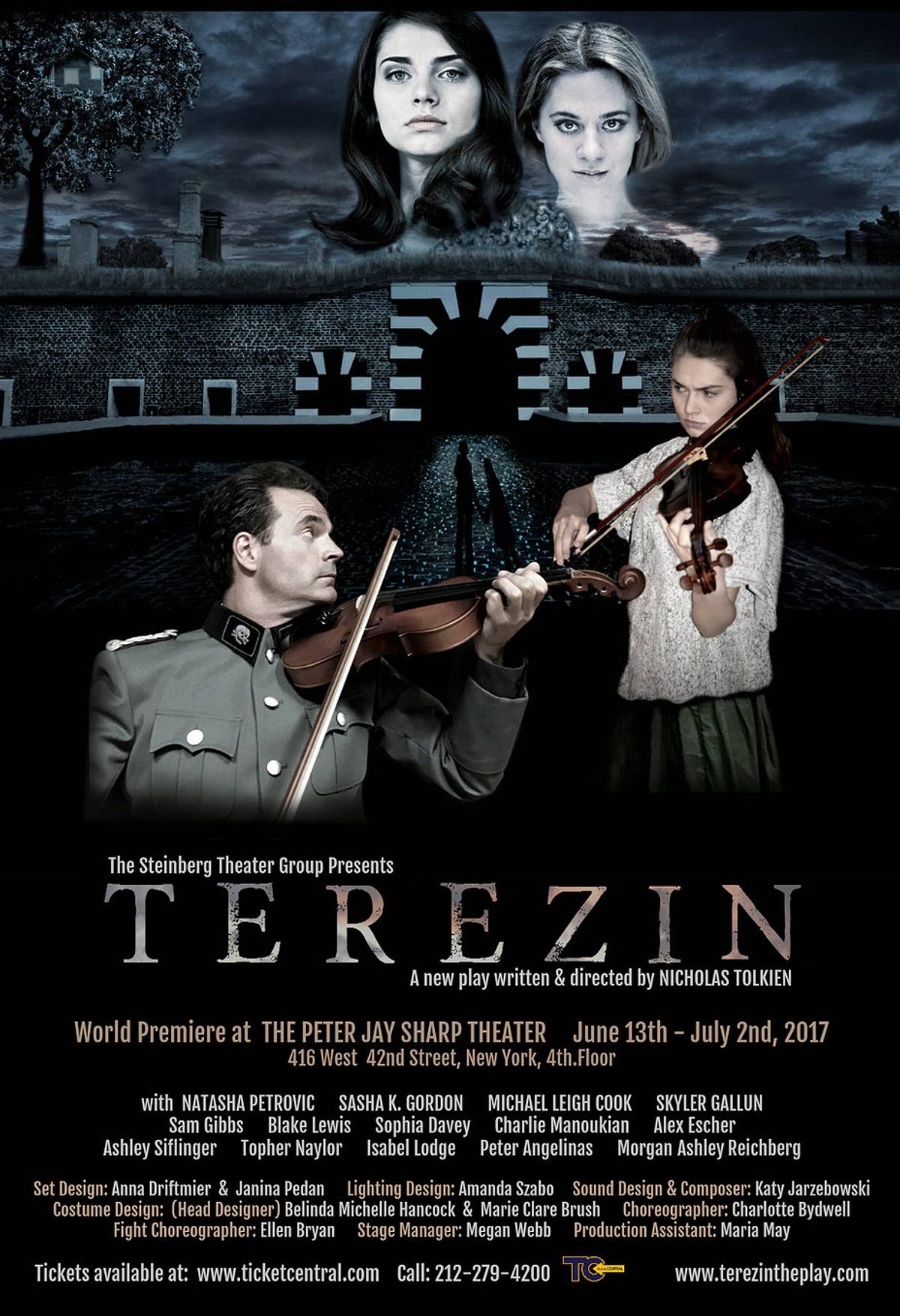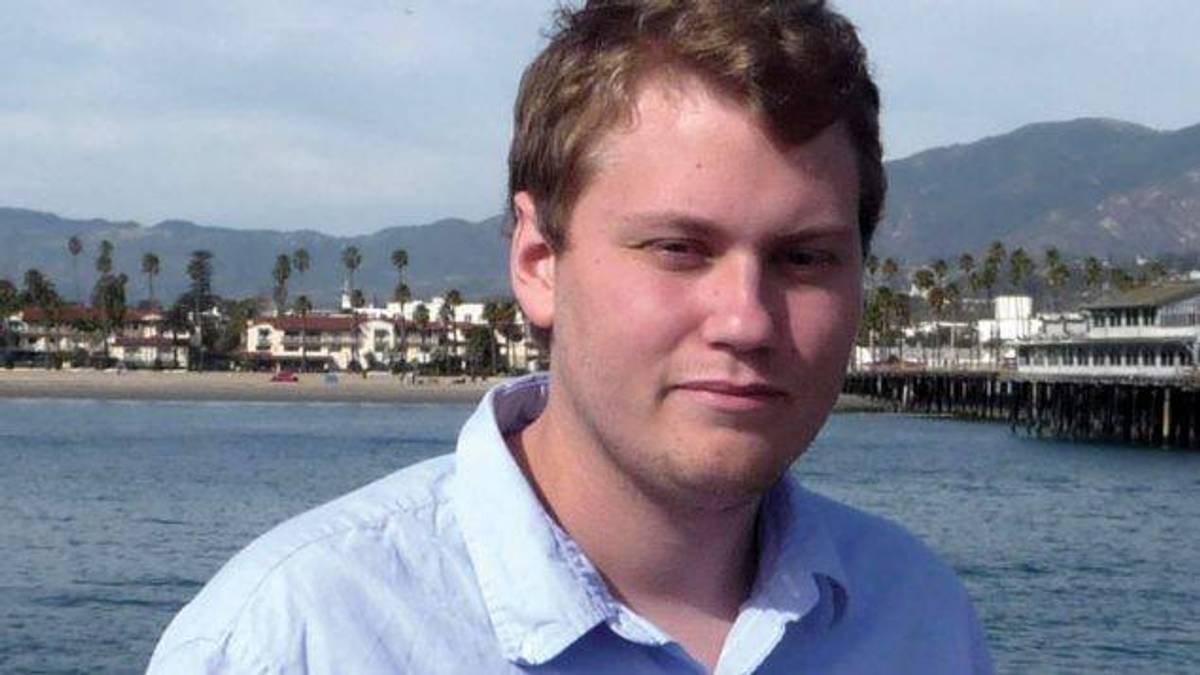‘Terezin,’ a Play by J.R.R. Tolkien’s Jewish Great-Grandson, Now Showing Off-Broadway
Nicholas Tolkien, 27, keeps kosher, studies Jewish texts, and observes the Sabbath




The Tolkien family has writing in its blood. Christopher Tolkien, the son of J.R.R. Tolkien, the famous author of The Hobbit and The Lord of the Rings series, edited his father’s works. Christopher Tolkien’s son, Simon, went on to write historical fiction. Simon Tolkien’s son, Nicholas, also fulfilled his great-grandfather’s legacy—he wrote a play. In a sense, he has honored the legacy of the other side of his family, too. Nicholas Tolkien’s mother is Jewish, and his play, Terezin—named after the former military compound in the Czechoslovakia where the Theresienstadt concentration camp was located—is now playing off-Broadway through July 2 at the Peter Sharp Theater in New York.

Tolkien’s play follows two young Jewish girls, Alexi and Violet, who are trying to survive the horrors of the camp. When Violet goes missing, Alexi does everything she can to find her—including making a deal with a Nazi commander. She’s a beautiful violinist, and gives the Nazi violin lessons in exchange for his help in finding Violet.
The musical inclinations of Alexi touch on the historical character of Theresienstadt; some prisoners’ works have been commemorated through revivals and publications, such as performances of Verdi’s “Requiem,” and the children’s opera “Brundibár.” In fact, the books I Never Saw Another Butterfly: Children’s Drawings and Poems from the Terezin Concentration Camp and The Terezin Diary of Gonda Redlich, drew Tolkien to the story of Terezin, and to the children who found an escape from the suffering around them through art.

The 27-year-old grew up in London, where he spent a lot of time at his Jewish-American mother and grandparents’ store, Steinberg & Tolkien. His grandfather Mark is the one who first taught him about Judaism. “My grandfather prepared me for my bar mitzvah,” he told Aish. “He was the one who introduced me to my faith, to the humor and the stories… He was always reading the Torah to me,” Tolkien said, adding that his grandfather was “the biggest Jewish influence I’ve had.” Now living in California, he expands on those lessons by studying Jewish texts, keeping Kosher, and observing Shabbat.
Regarding other patriarchs of his family, Tolkien said that his famous Catholic great-grandfather was an ally to Jews during the war. “He was one of the voices of reason in the British community and was one of Britain’s most pro-Jewish writers,” he said.
While Tolkien is pursuing the same endeavors of his great-grandfather, he’s also shaping his own legacy. He wanted to create something that would make audiences remember the atrocities committed in the past and to remind them what humans are capable of. “The reason I wrote this story,” the play’s website reads, “is to give a voice to the millions who were denied a chance to talk about their experiences during the Shoah, especially in Terezin—a place where the voice of an artist was their last hope of survival.”
Tolkien sees a greater purpose for his work than creating something for people to enjoy. “It’s the responsibility of the living to tell the stories of the dead,” he said.
Sophie Aroesty is an editorial intern at Tablet.